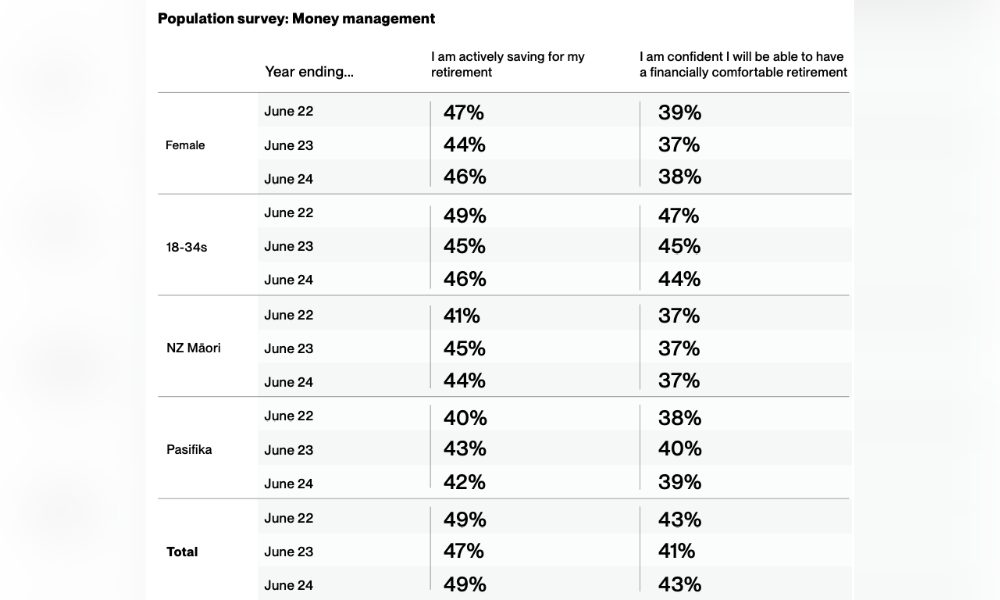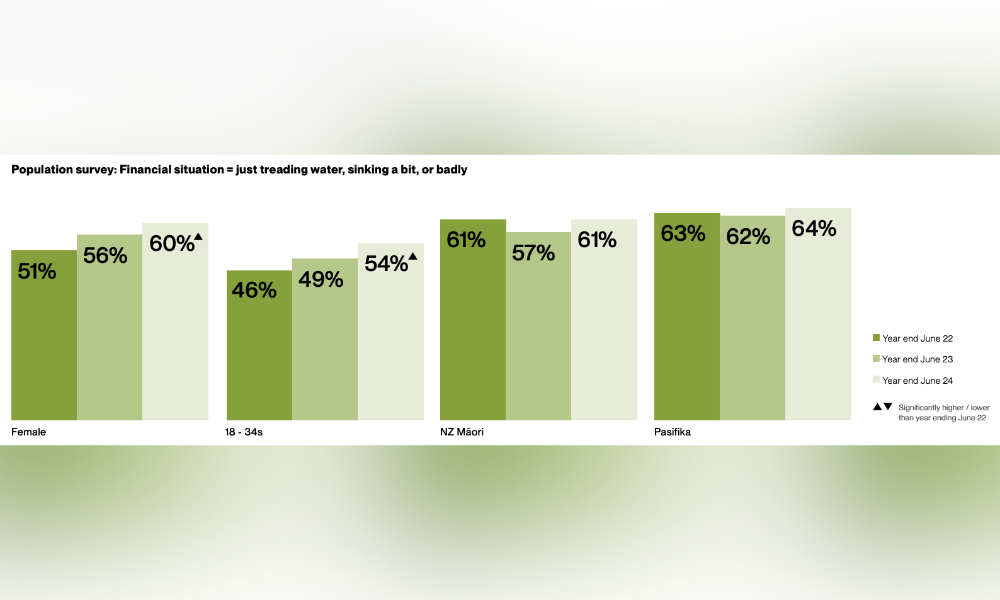
More Kiwis also setting long-term financial goals, according to report

Nearly half of New Zealanders are actively saving up for retirement despite financial discomfort, according to a new report from the Retirement Commission.
The report, which polled 3,000 New Zealanders, found that 49% are "actively saving" for retirement in the year ending June 2024.
Another 43% of the respondents are also optimistic that they will achieve a "financially comfortable retirement."
"Our insights reveal half the population are actively saving for retirement and this has remained constant despite the increasingly challenging economic times," said Tom Hartmann, Sorted Personal Finance Lead, in a statement.

Source: Money matters: How New Zealanders are feeling financially in 2024
The report further found that 59% are setting long-term financial goals, higher than the 57% in June 2023 and 54% in June 2024.
"There are also more people setting long-term financial goals and actively striving to achieve them compared to previous year, which is fantastic given the climate we're in," Hartmann said. "Unfortunately, although we are seeing some positive money habits, we do still have half of the population not actively saving for the long term."
These findings come amid prevailing financial discomfort among New Zealand's population, according to the report. In the year ending in June 2024, 56% of people would describe their current financial position as uncomfortable, higher than in 2023 (52%) and 2022 (49%).
The report noted, however, that this financial discomfort is "not felt evenly."
"Financial discomfort continues to be higher for NZ Māori and Pasifika, whilst discomfort for Females and 18-34s worsened over time," it read.

Source: Money matters: How New Zealanders are feeling financially in 2024
According to Hartmann, it's "good" to see people actively saving despite their financial discomfort.
"Although it's quite concerning to see so many New Zealanders struggling financially, it's good to see those who manage to still actively save for the long term," he said.